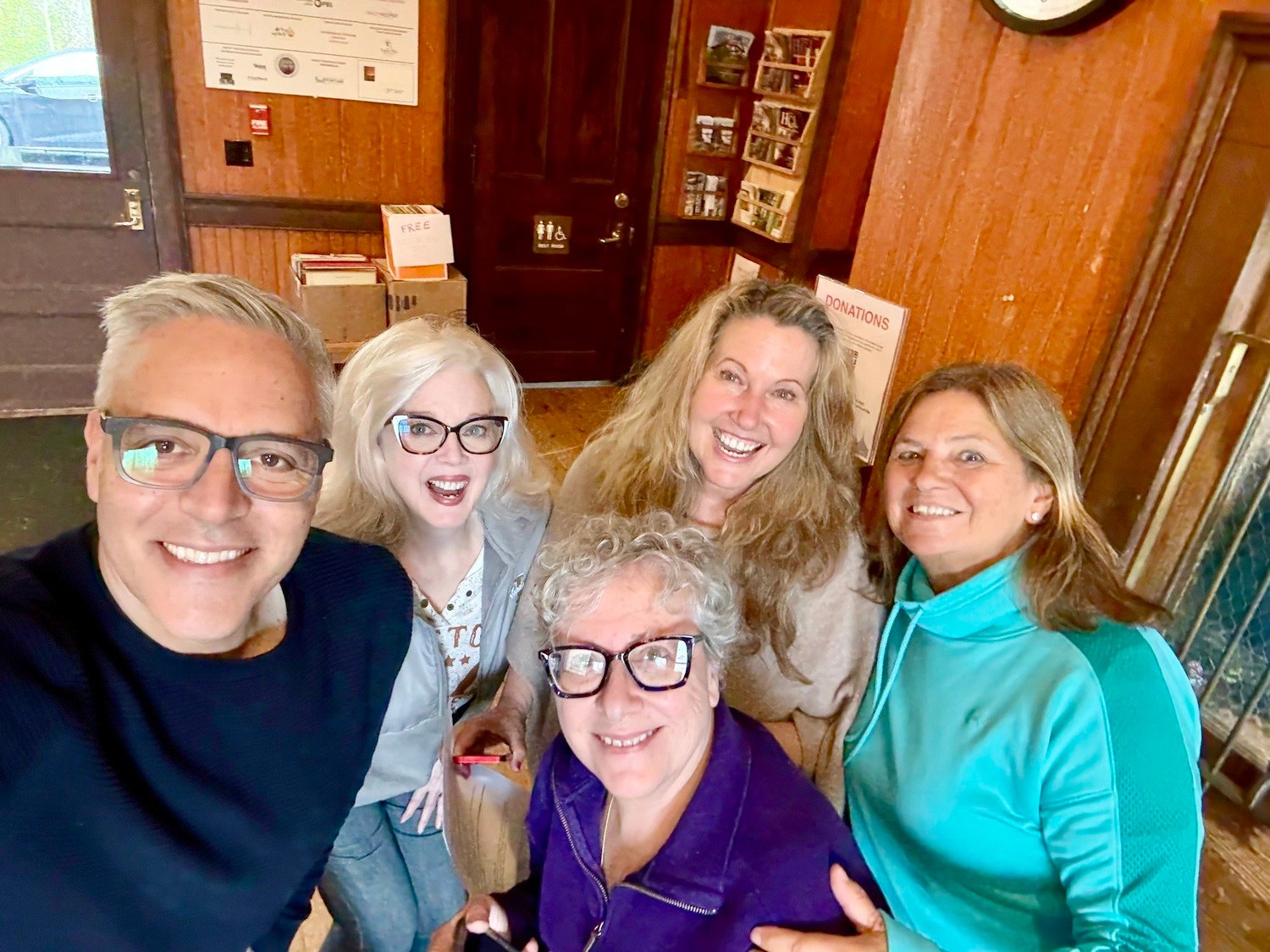Jul 14, 2025 —
The artistic producers at the Depot Theatre in Westport are pretty curious what you’ll think of the new show opening this weekend.
“Radiant Vermin” is a brilliantly written dark comedy satire about the lengths you go to get what you want, according to Beth Glover and Karen Lewis.
“It’s outrageous. It’s completely delicious. And, in this wonderful world of rampant consumerism, I think it’s going to speak to people,” said Lewis, ironically.
Lewis and Glover told Northern Light co-host Monica Sandreczki it’s a perfect fit for their mainstage season.
Their conversation and transcription has been edited for clarity.
On selecting shows for the season:
BETH GLOVER: Karen said recently that we choose seasons, not “something for everyone,” but “everything for everyone.” With summerstock, we’re drawing people most often that are vacationing or coming up to visit family for the summer and want to find something to do, so you really want a place for people to escape.
KAREN LEWIS: Something that appeals to everyone. Beth has spent the greatest part of her professional career on stage and directing and in popular shows. I spent most of my professional life writing soap opera and writing things that appeal to everybody.
We don’t just want a little section of “the intelligencia,” the people who want great, serious theater. There is stuff in this season that they will really appreciate. I don’t think it’s that difficult to appeal to everyone if that’s what you want to do, and that’s what we want to do.
We want to bring everybody together, every walk of life, and just have a darn good time.
On the quirks of performing in an operating train station
GLOVER: It’s gorgeous! Our motto is “you take a journey without leaving the station.” You’re going to walk into an 1876 train station. It’s the Amtrak station for the Westport stop.
LEWIS: You warn people about trains coming through during performances, which the audience loves.
GLOVER: We have to keep the backstage door closed because the public wanders in there because it’s clearly, once the door is open, not a bathroom.
LEWIS: The train pulls up. People disembark. And, there are people dressed like they’re in the 1940s. People think that they’ve gone into the Twilight Zone and they have no idea what in the name of heaven is going on here.
It’s nifty! Where the actual stage is used to be the old freight room.
GLOVER: We still have graffiti from the 1800s on the walls. The script is beautiful.
LEWIS: It’s kind of a contest. Can you guess what it says? It’s really kind of a hoot!
Frequently when we’re rehearsing and we’ll see people wandering around outside the windows and they’re looking in and we’re like, “Hey! Hey! Come on in the theater!” And they’re like, “but I’m really a train geek!”
People are so into it!
On the importance of being an Equity theatre
GLOVER: The thing about supporting performers in the union is that we pay into their health insurance and we also pay into their pensions. It is so hard to be an artist in this culture. There’s very few government subsidies and few grants for artists in our country, so we need support with our healthcare and our pensions.
LEWIS: We have wonderful sponsors and without that, the theater could not survive. So many theaters across the country have closed, are closing every day. It’s really criminal.
We want this place to thrive.
The support that we get from the community, from people who have been coming up here on vacation forever. There are people on our board who, as little kids, were painting scenery here. It’s really wonderful.
GLOVER: I feel like in that little bitty room, we come together like people have always come together from the beginning of time where we sit around and tell stories around the campfire.
People have to perform for each other. You go to a coffee shop and you look over at a table and there’s somebody going, “you won’t believe what happened yesterday!” Suddenly, they’re describing it. Their body language changes. They’re being another person to tell their story.
That’s what we’re doing in this room.
We’re doing an age-old practice of storytelling. We want to do it well and we want people to be excited about it and take part in it.
